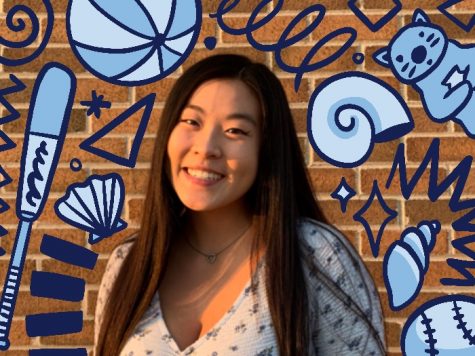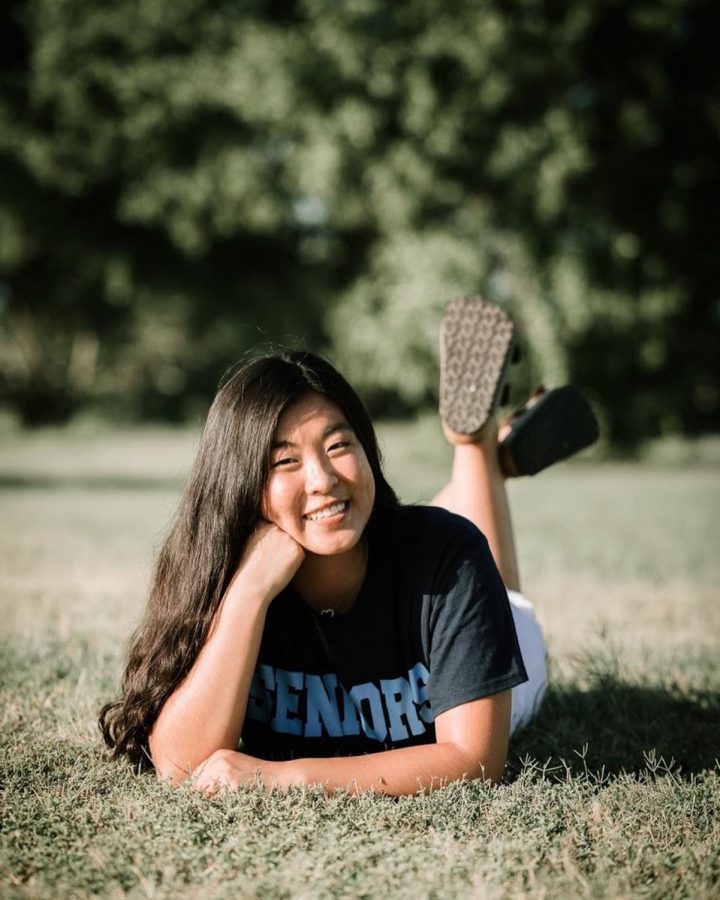How I found my voice: A thank you to Blueprint
“This is dumb af. This is why no one reads them wastes of paper.”
“You’re just making a problem where there is none.”
“@downerssouthblueprint’s writer is confident enough to share an opinion but not tough enough to take the rebuttal.”
Comments flood through my notifications–countless texts from my friends blow up my phone. I thought the opinion piece I posted was gaining positive reactions, but was quickly faced with the reality. I watched as an online war happened right before my eyes, all because of an article I wrote about the disparities between the people of color in the teaching staff and student body at our school.
My younger self wouldn’t believe an older version of her would have caused such a reaction; I used to be passive, the kind of person who was tolerant of my racist classmates who would pull at their eyes and call me “ching chong.” I tolerated my teachers confusing me with the only other Asian girl in my class even though I looked nothing like her. I was the type of person who laughed with the people who were laughing at me.
In high school, things only got worse. A guy called me a ch*** and when I got mad he called me a b****, one of my friends at the time told me a girl was ugly because she looked Asian, one of my teachers asked me what nationality I was even though I was very much American–but she only wanted to know what type of “Asian” I was.
I watched videos of my classmates singing the n-word and then posting it for the entire school to watch, my ex-boyfriend sent the derogatory song “Alabama N*****” to his volleyball team’s group chat that was called “Ariel left ____ for a Black,” and a girl made the news for writing the n-word on a blackboard at a school cheer competition.
This is when I became intolerant.
Sophomore year of high school I joined the school newspaper and immediately wanted to make a difference. The first article I published was entitled “DGS paints a picture that lacks color,” where I discussed why it’s problematic to have a nearly all-white teaching staff and our student body was being widely misrepresented. It reached nearly 800 views.
I didn’t stop there.
Throughout my years on the paper I continued to publish articles regarding racism, diversity and my identity. I brought my intolerance into my everyday life: going to protests, educating friends, advocating on social media, having conversations with the school administration on how to better their methods of inclusion and taking a cultural/ethnic studies class to broaden my knowledge.
I carried a weight of disappointment for a while after I saw the backlash from my peers. I felt like my voice was taken away from me and I was just like the majority of the people of color who go unheard; however, about a week after my article was published, messages on my Instagram began to trickle in from other people who went to my school.
“I really like your article! I definitely agree with it.”
“This was written perfectly.”
“Thanks for speaking out about this!”
I have become a representative of people of color who aren’t in my position to use their voices. I no longer use my voice for myself, I use it for others. I will continue to share my opinion, regardless of where I am in life or who likes me. Being in my position scares some people, but it empowers others.
So I thank Blueprint and the wonderful people that have come and gone throughout my years on it. The way everyone has encouraged me to speak my mind the past three years and also dealt with the internet chaos I’ve created (multiple times), I will never forget you. Thank you to my advisors, my teammates and some of my lifelong friends I’ve made sitting in that class.
I also thank District 99 for having an open mind for my criticism—even though not much progress was made in my years at DGS, I hope another person like me will be able to finish conversations I started.
Without Blueprint, I would not be in standing of where I am today. I wouldn’t have the personality and boldness I have now to speak my mind on the internet for thousands of people to see. I would probably be the same girl who just accepted racism as a part of life.
It was a privilege to have the voice that I did and I will be forever grateful for that.


